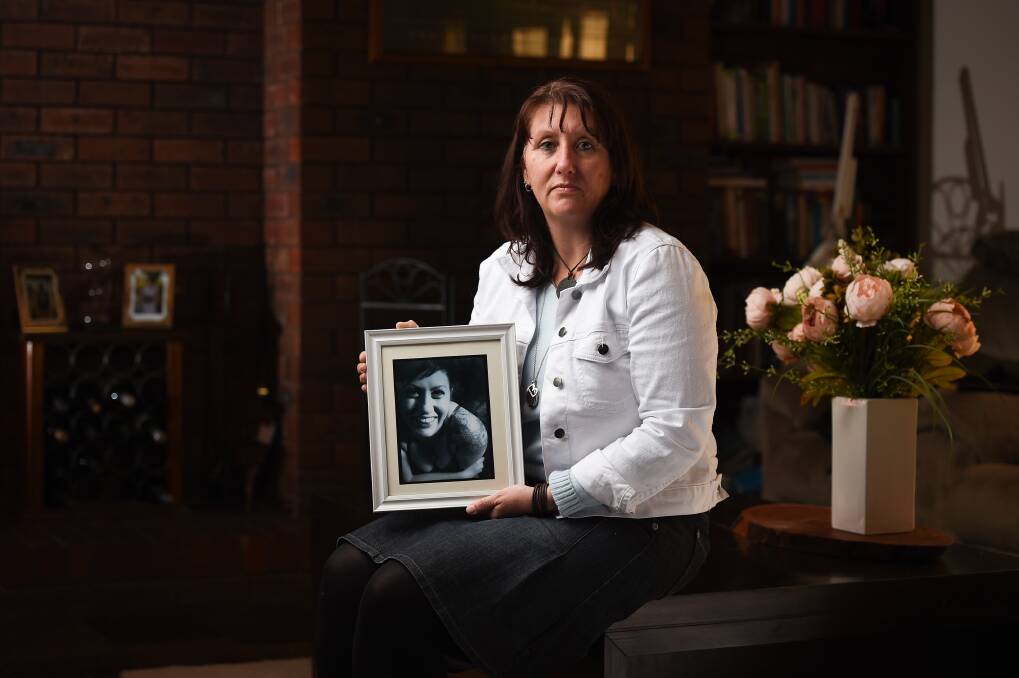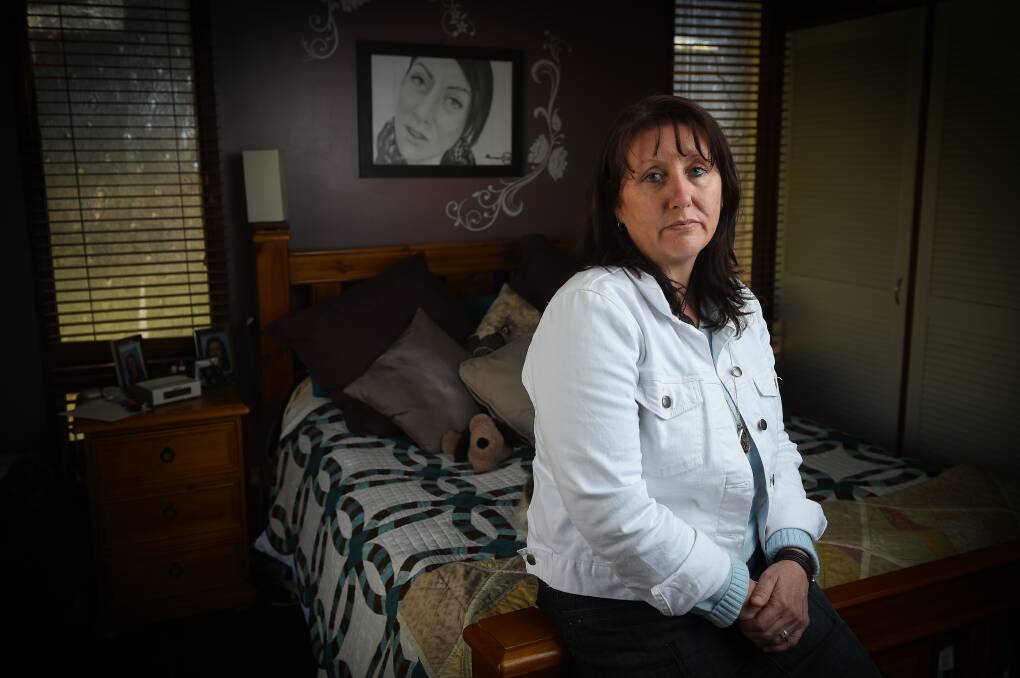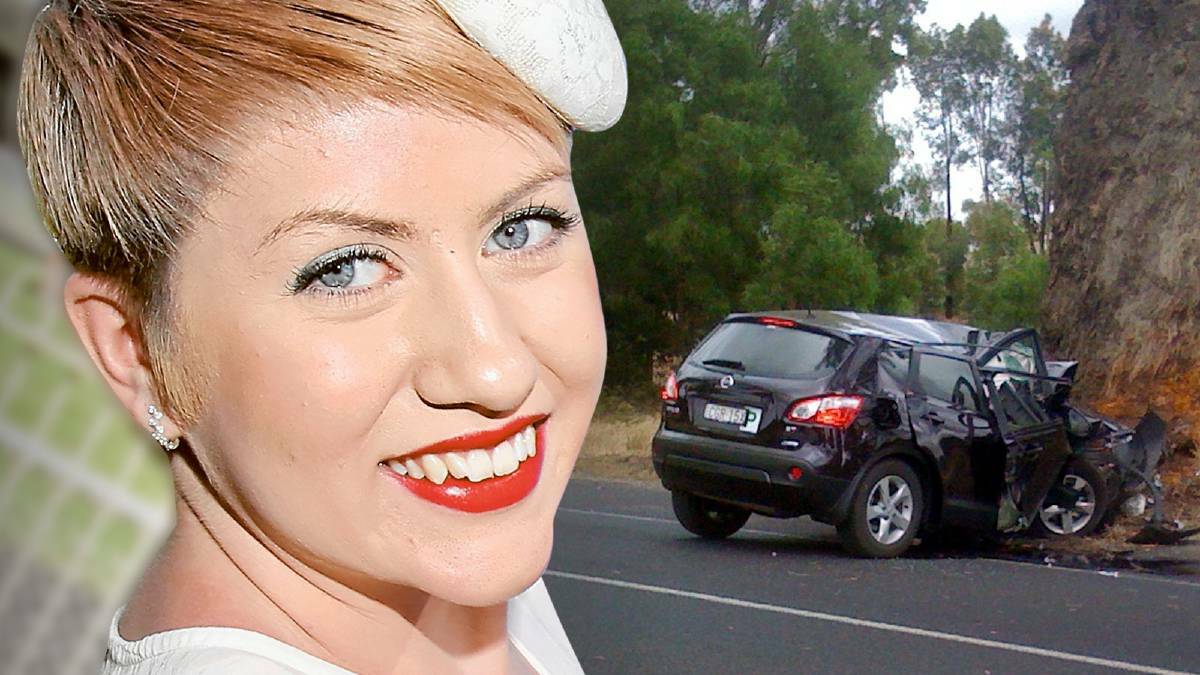
Brooke Richardson should be enjoying baby showers and the weddings of her friends.
Subscribe now for unlimited access.
$0/
(min cost $0)
or signup to continue reading
Instead her mother Vicki attends in her place, masking her heartache with a brave face.
If Brooke Richardson was still alive, her mother would never have faced the horror of having to identify her 20-year-old body at a morgue.
Instead Vicki wakes every day, imagining what her daughter’s life could have been.
If only …
Brooke Richardson died after “just one little text” while driving on the Murray Valley Highway, near Cobram.
Five years of praying, hoping and begging hasn’t changed that.
Brooke is still a daily presence in her family's life.
So is grief.

Vicki still chats to her daughter, or rather images of her, and often slips between past and present tense when talking about Brooke.
“She was very bubbly, very energetic, she loved being around people and making people smile, people were everything to her,” she says.
“We were very, weirdly close and we were very similar – we were like clones virtually.
“When I think about her I can’t be sad, she just makes me laugh and makes everyone else laugh too.”
The years have not diminished Vicki’s loss.
She counts and re-counts the number of times Brooke use to text her – 25 times a day.
Something so incidental suddenly transforms into a precious memory to cling to.
RELATED:
On December 4, 2012, Brooke woke up at her mother’s house in Mulwala, dyed her hair and ate breakfast before rushing to work.
It was an ordinary day, in what should have been a long line of ordinary days.
“She had to get petrol so she ran out the door and said, ‘See you later’,” Vicki says.
“Usually there’d be a hug and a kiss and ‘Have a good day’ but there was none of that on that day.
“That really sticks in my mind.”
At 8.45am Vicki was settling in to work when she received a call.
The 20-year-old’s boss called to say she had not turned up for work, and a car similar to Brooke’s had been involved in a serious crash.
The next few hours and days passed in a blur of disbelief, police officers and flowers.
A year before the crash, Vicki discovered Brooke had been texting while driving.
She sat her daughter down and spoke to her about the dangers of being distracted on the road.
Brooke stopped for a couple of weeks, but Vicki believes the allure of connection got the better of her.
Despite the all-consuming nature of loss and grief, time passes.
While Brooke will always be 20, her friends, parents and siblings go on – living and ageing.
“She never got married or understood what it was like to have a child,” Vicki says.
“I’ll never be a grandmother to her baby.
“I went to her best friend’s baby shower and stayed 10 minutes.
“I went to the same girl’s wedding and said ‘I’ll be fine, I’ll be fine’, but you never are.”
It usually hits hardest on “those special days” – Mother's day, birthdays and Christmas.
“That’s when it really gets to me,” Vicki admits.
Five years on, the ripple effects of that day are still being felt in the lives of those who knew Brooke or live on the Border.
Vicki says Brooke’s 19-year-old brother has been too scared to get his licence, having seen first-hand the road’s deadly toll.
She says the woman who came across the crash still has panic attacks when ambulances pass her on the highway five years later.
“Two schools were practically shut down that day, the teachers and students knew her at both schools,” Vicki says.
“It impacts such a wider community, it's crazy.
“Brooke would have hated that. She would have hated that she made anyone sad.
“The impact on the people who saw the accident was massive; they had ongoing issues for a very long time and probably still do.”

As time has passed, Vicki has spread her anti-texting and driving message across Australia through the dont-txt-n-drive Foundation.
But complacency is hard to battle, with many in the region falling into bad habits, despite knowing fully what one text can cost.
“I can drive through Cobram and see people texting and driving nearly every day,” Vicki says.
“A couple of weeks ago it was someone Brooke worked with and I’m just like, ‘Seriously? – You know’. But it shows as much as people know the cost, they still don’t think it’s real.
“When I talk to kids I put the ownership back on them. I say, ‘Do you want to do this to your mum and dad?’, ‘Do you want them to have to identify your body?’
“Because you can get away with it – and people do – but it’s that one time it might go wrong and you don’t know when it will be.”
When Brooke pressed send that day, she not only risked her life, she risked the lives of others on the road, she risked jail time, she risked serious injury.
“Kids grow up these days and they've been immersed in drink-driving and speeding messages and they know not to do it, even though some of them take risks,” Vicki says.
“Young people are not so immersed in the texting message so they don’t understand it.”
From 2010 to 2014, a total of 236 crashes listed mobile phone use as a contributing factor, including seven fatalities, and 116 crashes causing injury.
Vicki echoes statements from Transport NSW that current texting and driving statistics don’t reflect the full picture.
It is extremely hard to determine phone usage as the cause of a crash.
For Vicki, campaigning for change is bittersweet.
“It helps with the grief that I can see the world is changing because of something she has started,” she said.
“Brooke always wanted to do something big, to help someone else.
“It’s me still being a mum and trying to do something for her so she can achieve her goals.”
Vicki’s enduring hope is that when anyone behind the wheel hears the alluring ping of their phone, they think of Brooke first.
Brooke – the vivacious hairdresser, dedicated daughter and loving friend, who could have been or done anything.
Brooke – who should still be here.
Living.



